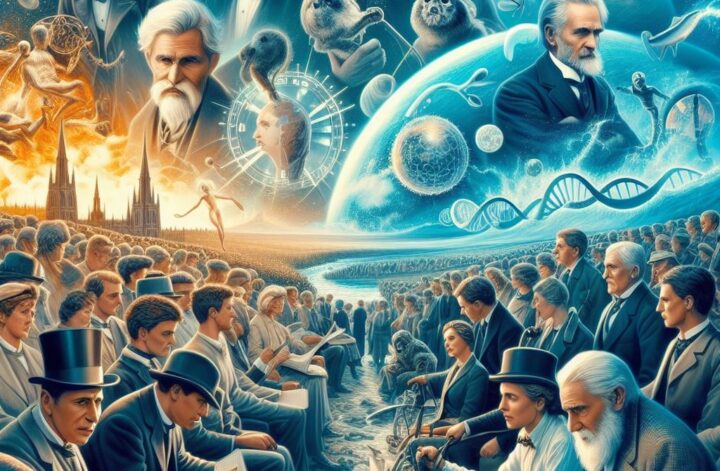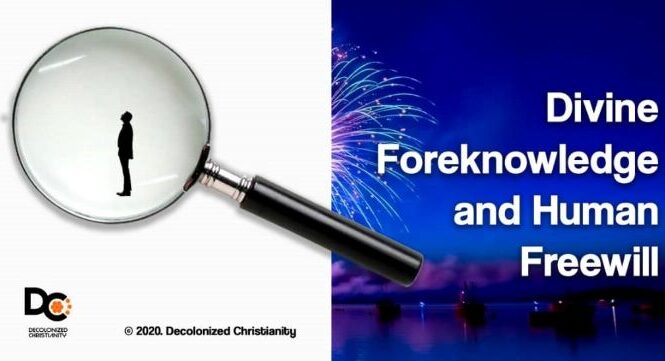Background – An Everlasting Myth?
The matter of the deity of Jesus is one of the most debated issues in Church history. Indeed, we have addressed one piece of the debate here before. The disagreements continue partly because Judaism teaches monotheism, and some people find the idea of multiple persons in the Godhead contradictory. Moreover, the notion of there being three persons in the Godhead is, admittedly, not intuitive, and many a Christian who claims to believe in a trinitarian God cannot adequately defend the doctrine. In our day, it also does not help that there is much historical misinformation on the subject. It is common, for instance, among many who deny thehttps://decolonizedchristianity.org/the-fundamental-error-of-crowthers-critics-series-part-3-fina le/ deity of Jesus to charge that nobody before the 325 AD Council of Nicaea believed Jesus was God. It is an old myth that will probably never go away. Dan Brown, in his famous The Da Vinci Code, puts the following in the mouth of the character, Sir Leigh Teabing:
“Jesus’ establishment as ‘the Son of God’ was officially proposed and voted on by the Council of Nicaea. . . . a relatively close vote at that. . . . By officially endorsing Jesus as the Son of God, Constantine turned Jesus into a deity who existed beyond the scope of the human world, an entity whose power was unchallengeable” (253).
Famously, Jehovah’s Witnesses also believe similarly to Brown. They even have a version of the bible, which reflects their theology. In one document, the Watchtower Society states:
“For many years, there had been much opposition on Biblical grounds to the developing idea that Jesus was God. To try to solve the dispute, Roman emperor Constantine summoned all bishops to Nicaea. . . . Constantine’s role was crucial. After two months of furious religious debate, this pagan politician intervened and decided in favor of those who said that Jesus was God. . . . After Nicaea, debates on the subject continued for decades. Those who believed that Jesus was not equal to God even came back into favor for a time. But later Emperor Theodosius decided against them. He established the creed of the Council of Nicaea as the standard for his realm and convened the Council of Constantinople in 381 C.E. to clarify the formula.”
As a fictional work, Brown’s Da Vinci Code may be forgiven for misrepresenting the facts. But even this quote—inadvertently, perhaps—contains enough accurate history. The Council of 325 AD indeed discussed the deity of Jesus. However, Brown erred when he asserted that the divinity of Christ was “officially proposed” at the meeting, as though nobody ever heard about it until the Council. Even today, people do not propose and vote on significant issues within a short period—certainly not when it is the minor matter of who God is! Brown’s assertion is also inaccurate when it says it was a close vote—only five bishops (out of over 300) voted against the view that Jesus is consubstantial with the Father. The fact is that Bishops came ready to vote on the matter at the Council because they already hotly debated the issue prior. Indeed, as we shall see shortly, the notion that Jesus is God is as old as, at least, the New Testament.
The document also further states that “The testimony of the Bible and of history makes clear that the Trinity was unknown throughout Biblical times and for several centuries thereafter.” This statement is wrong on both counts of biblical witness and history. Since this essay will mainly focus on biblical data, I shall briefly provide historical data showing that people knew about the idea of the deity of Jesus long before any council sat in 325 AD.
Several Early Church Fathers Professed Jesus as God
Nathan Busenitz chronicles several Church fathers who, living before Constantine, took the deity of Jesus for granted in their writings. It is equally critical to note that none of these fathers was ever condemned for his belief in the deity of Jesus. All the quotes below are from Busenitz’s work, which contains original references.
Ignatius of Antioch
This Church father lived from around 50 AD to 117 AD—that is some 200 years before Constantine. The following are some quotes from his works:
- “For our God, Jesus the Christ, was conceived by Mary according to God’s plan, both from the seed of David and of the Holy Spirit.” (226)
- “Consequently all magic and every kind of spell were dissolved, the ignorance so characteristic of wickedness vanished, and the ancient kingdom was abolished when God appeared in human form to bring the newness of eternal life.” (226)
- “For our God Jesus Christ is more visible now that he is in the Father. (226)
- “I glorify Jesus Christ, the God who made you so wise, for I observed that you are established in an unshakable faith, having been nailed, as it were, to the cross of the Lord Jesus Christ.” (226)
- “Wait expectantly for the one who is above time: the Eternal, the Invisible, who for our sake became visible; the Intangible, the Unsuffering, who for our sake suffered, who for our sake endured in every way.” (226)
Polycarp of Smyrna
This church father, who some people believe to have been a disciple of John the Apostle, lived from 69 AD to 155 AD—once again, that is some 200 years before Constantine. Polycarp has the following to say on the subject at hand:
- “Now may the God and Father of our Lord Jesus Christ, and the eternal high priest himself, the Son of God Jesus Christ, build you up in faith and truth . . ., and to us with you, and to all those under heaven who will yet believe in our Lord and God Jesus Christ and in his Father who raised him from the dead.” (226)
Epistle of Barnabas
- This extra-biblical Christian document is dated to between 70 AD and 130 AD, some 200 years before Emperor Constantine was born. This document testifies:
- “If the Lord submitted to suffer for our souls, even though he is Lord of the whole world, to whom God said at the foundation of the world, ‘Let us make humankind according to our image and likeness,’ how is it, then, that he submitted to suffer at the hands of humans?” (226)
Justin Martyr
This Church father lived between about 100 AD to 165 AD, about two centuries before Constantine. He has the following to say:
- “And that Christ being Lord, and God the Son of God, and appearing formerly in power as Man, and Angel, and in the glory of fire as at the bush, so also was manifested at the judgment executed on Sodom, has been demonstrated fully by what has been said.” (226-227)
- “Permit me first to recount the prophecies, which I wish to do in order to prove that Christ is called both God and Lord of hosts.” (227)
- “Therefore these words testify explicitly that He [Jesus] is witnessed to by Him [the Father] who established these things, as deserving to be worshipped, as God and as Christ.” (227)
- “The Father of the universe has a Son; who also, being the first begotten Word of God, is even God. And of old He appeared in the shape of fire and in the likeness of an angel to Moses and to the other prophets; but now in the times of your reign, having, as we before said, become Man by a virgin” (227).
- For if you had understood what has been written by the prophets, you would not have denied that He was God, Son of the only, unbegotten, unutterable God. (227)
Notice how the language Justin employed in these writings shows he was critiquing some fellows who denied the deity of Jesus in his day. In other words, people debated the deity of Jesus some 300 years before Constantine became an emperor. Justin Martyr’s writings are also relevant to this essay in other ways. Specifically, we shall shortly revisit some ideas in the first and fourth quotes above.
Tatian of Adiabene (110–172) was a second-century theologian who has the following to say:
- “We do not act as fools, O Greeks, nor utter idle tales when we announce that God was born in the form of man.” (227)
Melito of Sardis (d. c. 180) was an influential second-century bishop who wrote:
- “He that hung up the earth in space was Himself hanged up; He that fixed the heavens was fixed with nails; He that bore up the earth was borne up on a tree; the Lord of all was subjected to ignominy in a naked body – God put to death! . . [I]n order that He might not be seen, the luminaries turned away, and the day became darkened—because they slew God, who hung naked on the tree. . . . This is He who made the heaven and the earth, and in the beginning, together with the Father, fashioned man; who was announced by means of the law and the prophets; who put on a bodily form in the Virgin; who was hanged upon the tree; who was buried in the earth; who rose from the place of the dead, and ascended to the height of heaven, and sitteth on the right hand of the Father.” (227)
Irenaeus of Lyons
Irenaeus was another influential bishop from Smyrna as Polycarp was. He was Greek and raised in a Christian home, as opposed to some of the other bishops who came to Christianity as adults. He lived between 120 AD and 202 AD. He wrote the following:
- “For I have shown from the Scriptures, that no one of the sons of Adam is as to everything, and absolutely, called God, or named Lord. But that He is Himself in His own right, beyond all men who ever lived, God, and Lord, and King Eternal, and the Incarnate Word, proclaimed by all the prophets, the apostles, and by the Spirit Himself, may be seen by all who have attained to even a small portion of the truth. Now, the Scriptures would not have testified these things of Him, if, like others, He had been a mere man. . . . He is the holy Lord, the Wonderful, the Counselor, the Beautiful in appearance, and the Mighty God, coming on the clouds as the Judge of all men;—all these things did the Scriptures prophesy of Him.” (227-228)
- “Christ Jesus [is] our Lord, and God, and Savior, and King, according to the will of the invisible Father.” (228)
- “Christ Himself, therefore, together with the Father, is the God of the living, who spoke to Moses, and who was also manifested to the fathers.” (228)
- “He received testimony from all that He was very man, and that He was very God, from the Father, from the Spirit, from angels, from the creation itself, from men, from apostate spirits and demons.” (228)
Busenitz’s work contains even more writings of early Church fathers like Clement of Alexandria, Tertullian, Hippolytus, Caius, Origen, and Novatian of Rome, documenting the fact that the belief that Jesus is God predates Constantine. These Christian writers, who predate Emperor Constantine for some 200 years, all argued for the deity of Jesus. So, it is simply utter nonsense to say Constantine invented the idea that Jesus is God.
An obvious question is begging to be asked, “where in the world did all those early Church leaders get the idea that Jesus is God?” From the bible, of course. Some quotes above even contain this source information. In this blog series, I shall argue that the idea that Jesus is Yahweh has its provenance in the Hebrew Bible and was later well-developed by New Testament authors. Before we get into the Old Testament origin of the idea of Jesus as Yahweh, however, let us quickly clarify some terms that may hinder clarity.
Works Cited
Brown, Dan. The Da Vinci Code. New York: Anchor Books, 2006. Print.
Busenitz, Nathan. “Did Constantine Invent the Trinity?: The Doctrine of the Trinity in the Writings of the Early Church Fathers.” MSJ, vol. 24, no. 2, 2013, pp. 217-242.
Should You Believe in the Trinity? Brooklyn: Watchtower Bible and Tract Society, 1989. Print.




